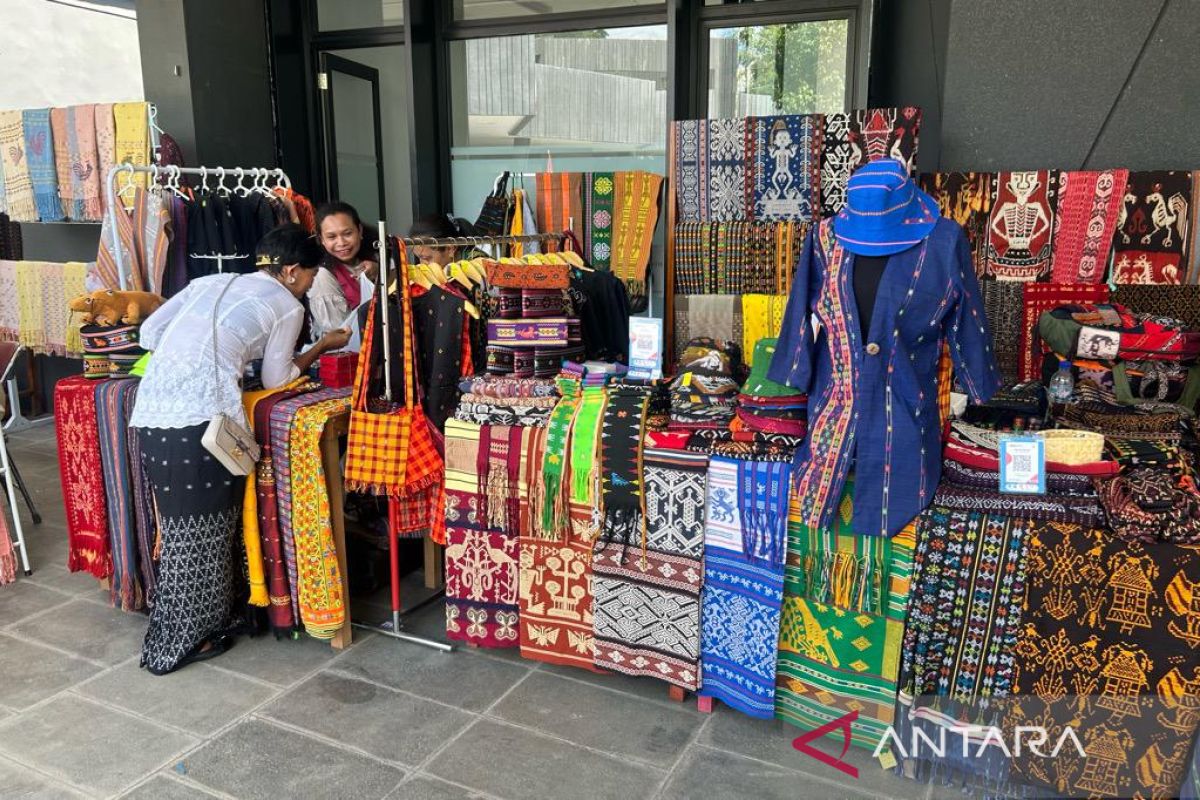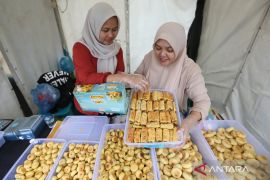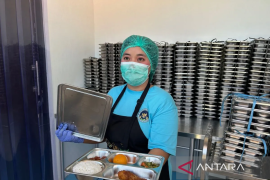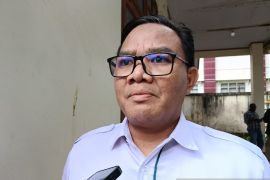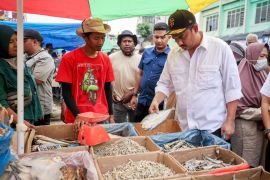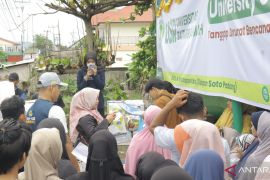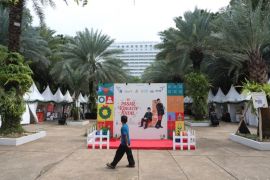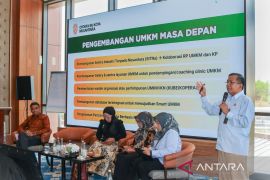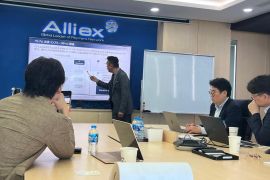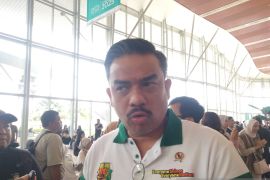The delegates came to Labuan Bajo to attend the 42nd ASEAN Summit held on May 9-11, 2023.
During its chairmanship this year, Indonesia raised the theme of "ASEAN Matters: Epicentrum of Growth" that highlighted the relevancy of the region as the global center of growth.
With this theme, Indonesia encouraged the region's role in strengthening its capacity and institution in order to face and find solutions to future challenges.
ASEAN is a region that has considerable assets in the form of a large population and economic growth that is almost always above the average global growth.
This year's ASEAN Summit also stressed its commitment to being a region that is inclusive, resilient, and sustainable economically.
Indonesia makes the most of this momentum to bring economic benefits to its various cities in order to showcase the country's development to the world and attract foreign investment.
MSMEs' potential
Finance Minister Sri Mulyani Indrawati stated that micro, small, and medium enterprises (MSMEs) are an important pillar for national economic growth.
MSME's contribution to Indonesia's GDP reached 61 percent in 2021 and absorbed 97 percent of the workforce as well as collected revenue reaching up to 60.4 percent of the total investment.
Based on data from the Ministry of Cooperatives and SMEs, they were at least 64.19 million MSMEs in Indonesia, with a 61.97-percent contribution to the GDP, or Rp8,573 trillion (around US$580 million).
Meanwhile, Statistics Indonesia (BPS) reported that 99 percent of MSMEs in Indonesia are at the micro level, with around 57 percent being managed by women.
MSMEs' revival
On the sidelines of the 42nd ASEAN Summit in Labuan Bajo on Wednesday (May 10), Minister of State-Owned Enterprises (SOEs/BUMN) Erick Thohir drew attention to financing, assistance, and market penetration as being crucially required by Indonesian MSMEs.
Financing is vital as is apparent from the distribution of the people's business credit (KUR) that had reached Rp335.29 trillion (US$22 billion) in 2022, or 89.89 percent of the allocation of that year's state budget (APBN) of Rp373 trillion (US$25 billion).
Meanwhile, the SOEs Ministry noted that 92 percent of the KUR had been distributed through banks.
However, financing must be continued with assistance or facilitation for MSME actors. For instance, through banks, SOEs have been offered insurance, have been assigned as the off-takers, and supported them to enter the market.
During the 42nd ASEAN Summit in Labuan Bajo, the SOEs Ministry held the SME's Hub as a side event that introduced the nation's flagship products to all ASEAN Summit delegates.
SME's Hub, which will be held until May 13 at the Waterfront Marina, featured 50 MSME booths that were empowered by state-owned companies, ministries, and agencies. Some local MSMEs were also present there.
In supporting MSME products to become more popular, the ministry presented the e-catalog and the Padi BUMN application as the marketplace.
Currently, one of the state enterprises in the mining sector, MIND ID, has assisted over 12 thousand MSME partners, of which 301 were upgraded in terms of quality in 2022.
The MIND ID Group expects more fostered and upgraded small businesses in the future.
State-owned banknote printer Peruri also brought its assisted MSMEs to participate in the 42nd ASEAN Summit.
Peruri presented four assisted MSMEs in the food and beverage sector: Salaku, Dapoer Bintang Jaya, Maemkoe, and Dapoer Kia.
Indonesia also encourages all MSMEs to use QRIS, or the QR Code Indonesia Standard, as their payment system.
The Quick Response (QR) Code digital payment service is targeted to be implemented in ASEAN member countries by September 2023, according to Chairperson of the ASEAN Business Advisory Council (ASEAN-BAC) Arsjad Rasjid.
"This is not just a motto. In fact, digital QR Codes can be used in ASEAN member countries by this September," he told ANTARA in Labuan Bajo, East Nusa Tenggara, on Wednesday.
Digital transformation, such as shifting fully to the universal ASEAN QR Code, is considered to be of utmost importance. This aims to ensure MSME transactions in Southeast Asia can use local currencies that will certainly reduce transaction costs.
"Paying with rupiah can reduce transaction costs, and this is good for the MSMEs," Rasjid remarked.
Another digitization program that was introduced by ASEAN-BAC is the WIKI Entrepreneurship, a one-stop solution for MSMEs in need of resources and opportunities to enhance their performance and competitiveness.
The platform can connect MSMEs throughout ASEAN in supporting economic development and growth.
One of Indonesia's chairmanship visions, ASEAN's centrality, is proven by these possible universal transactions among the region's small businesses.
Post-event
The SOEs Ministry mobilized over 50 "BUMN Millennials" or young people, who work in state enterprises across sectors, such as BRI, Pertamina, Mandiri, Telkomsel, Pegadaian, Pelindo, HIN, and PELNI, to participate in the BUMN Youth Environmental Movement at Binongko Beach, Labuan Bajo, Thursday (May 11).
BUMN millennials along with startup PlusTik collected plastic waste around the beach as a form of care for the environment. They also collected trash at Waecicu Beach, Kukusan Island, Waterfront Marina, and Pede Beach.
"(This is) in line with the ministry's commitment to development, one of which is the environment," Minister Thohir remarked.
The beach cleaning and waste processing results were displayed at Rumah BUMN SME’s Hub booth at the Waterfront City area.
Related news: Minister optimistic of ASEAN Summit positively impacting residents
Related news: Minister introduces Indonesian MSMEs through SME's Hub
Editor: Rahmad Nasution
Copyright © ANTARA 2023
